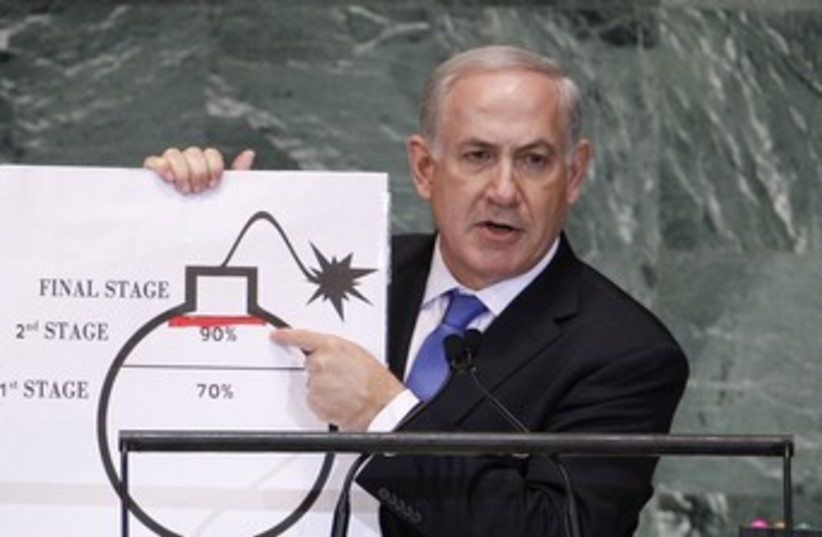When both Foreign Minister Israel Katz and Defense Minister Yoav Gallant on Wednesday threatened retaliatory attacks if Iran does indeed decide to launch a strike against the Jewish State, it felt like a game of political chutes and ladders – and here we are again, at the start.
This followed Prime Minister Benjamin Netanyahu’s statement a few days ago: “We will know how to defend ourselves, and we will act according to the simple principle: that those who harm us or plan to harm us, we will harm.”
The warnings came after Iran’s Supreme Leader Ayatollah Ali Khamenei said Israel “must be punished and it shall be,” for allegedly killing two high-ranking Iranian military officials in an attack on Iran's consular complex in Damascus..
Iran and Israel have danced this dance before.
Ayatollahs and presidents have threatened to wipe the Zionists off the face of the Earth almost since the day Ayatollah Ruhollah Khomeini became leader of the Islamic Republic.
Who could forget Bibi at the UN with his Looney Toon image of a bomb and how close Iran was to finally achieving nuclear weapons?

This is not to downplay the threat of Iran to Israel or Israeli citizens.
The proof of the danger of Iran through its proxies is clear, as we saw on October 7. The actions of Hamas terrorists sent this nation into a trauma that will probably take generations (if we have them) to recover from. Hezbollah sits patiently above our northern border firing rockets and UAVs, waiting their turn to be dealt with.
Commentators have pointed out that now is one of the few occasions that Israel is genuinely calling the Iranians’ bluff. After allegedly killing X in Syria, there has been threat after threat about Iran’s response.
Israel is standing there, arms out defiantly, saying "Yalla."
Schools have begun sending out messages to parents regarding the possibility of remote learning if Israel and Iran should fall into a conventional war.
People are buying supplies and stocking up on necessities to provide for their families in case there is a war.
This is all fair. Iranian threats should not be treated lightly.
What should be treated with some caution are the comments of Israeli politicians. Be wary of any politician warning the public about war with Iran. Beware political rhetoric.
Failing governments always seek a cause to rally around
One glance through history tells us that any failing government, any struggling authority, looks to find something to unite the people, to maintain support of the proletariat that enables them to stay in power. October 7 and the Israel-Hamas War was supposed to be that. We all rallied behind our heroic soldiers as they fought with Hamas terrorists on the ground in Gaza, and initially the government had almost total support throughout the country against Hamas.
Margaret Thatcher desperately needed the Falklands War in 1982. Brutal economic conditions had many believing her tenure at Downing Street would be short-lived.
Russia’s ongoing war with Ukraine is partly due to Putin’s fears of a prosperous Western-leaning Slavic neighbor on his borders, which could bring his population’s disaffection with domestic issues to the fore. And who could forget the nationalistic fervor whipped by all sides during the disintegration of Yugoslavia, which led to a succession of wars?
As the war has passed the six-month mark, however, and as the chances of rescuing the remaining hostages recede with each passing day, the government’s support is waning. Protests over the dragged-out hostage talks are becoming increasingly political and a sign of dissatisfaction with the current regime.
Be wary of listening to our politician’s musings on Iran and following them blindly like lambs to the slaughter for the good of the country.
October 7 proved that Israelis can unite when they have to, and they may well have to once again if war with Iran becomes a reality.
But be wary of political bluster and rhetoric.
